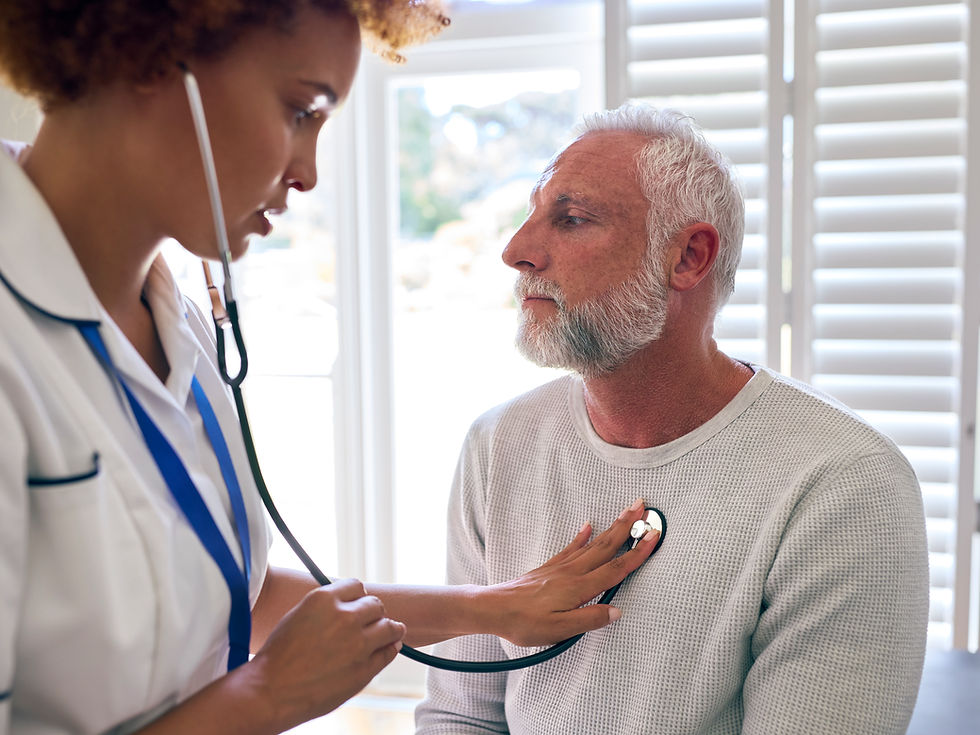How to Recognize the Signs of a Stroke
- John Potter
- May 8, 2024
- 2 min read

Can you recognize symptoms of stroke?
In the United States stroke is within the top 10 leading causes of death and disability among adults 25 and older.
In 2020 stroke was the fifth leading cause of death among those 65 and over, women face an even higher risk of stroke with it being the number 3 leading cause of death among them. As with all disease there are some risk factors within your control and some that are not.
There are two types of strokes, ischemic and hemorrhagic. Ischemic stroke happens when blood supply to part of the brain is blocked or lost, depriving that part of the brain of it’s required oxygen and nutrients. In hemorrhagic stroke a blood vessel either leaks or bursts which causes bleeding in the brain, that blood increases pressure in the brain and causes damage. In both cases brain cells can begin to die very quickly making time extremely valuable. You can see more about the different types of strokes here.
Early recognition and treatment lead to the best outcomes in all cases of stroke. The American Heart Association advises using the “FAST” method to recognize stroke symptoms and get the most immediate medical attention possible.
F.A.S.T. Warning Signs
Use the letters in F.A.S.T. to spot a Stroke
F = Face Drooping – Does one side of the face droop or is it numb? Ask the person to smile. Is the person's smile uneven?
A = Arm Weakness – Is one arm weak or numb? Ask the person to raise both arms. Does one arm drift downward?
S = Speech Difficulty – Is speech slurred?
T = Time to call 911 – Stroke is an emergency. Every minute counts. Call 911 immediately. Note the time when any of the symptoms first appear.
Other stroke symptoms include sudden:
Numbness or weakness of face, arm, or leg, especially on one side of the body
Confusion, trouble speaking or understanding speech
Trouble seeing in one or both eyes
Trouble walking, dizziness, loss of balance or coordination
Severe headache with no known cause
By learning and sharing the F.A.S.T. warning signs, you can help defeat stroke! If you or someone you know are exhibiting signs of stroke, do not delay, call 911 immediately.
As with all aspects of our health, knowledge is power! Here is a great stroke risk assessment from the American Heart Association. Talk to your doctor about any and all concerns you may have regarding stroke and stroke prevention.
Click here to schedule an appointment with us to make sure you have the best insurance options available to you so you can keep on top of your healthcare!


Comments